Explore the top 10 important lunar holidays in Vietnam, from the Mid-Autumn Festival with its full moon celebrations to Tet Nguyen Dan, honoring family and tradition.
Lunar holidays hold a special place in Vietnamese culture, blending tradition and community spirit. Among the various Vietnam holidays, the top ten stand out for their significance and vibrant celebrations. These occasions, rooted in the lunar calendar, offer a unique glimpse into the country’s rich history and customs, each holiday reflects the values and beliefs of the Vietnamese people.
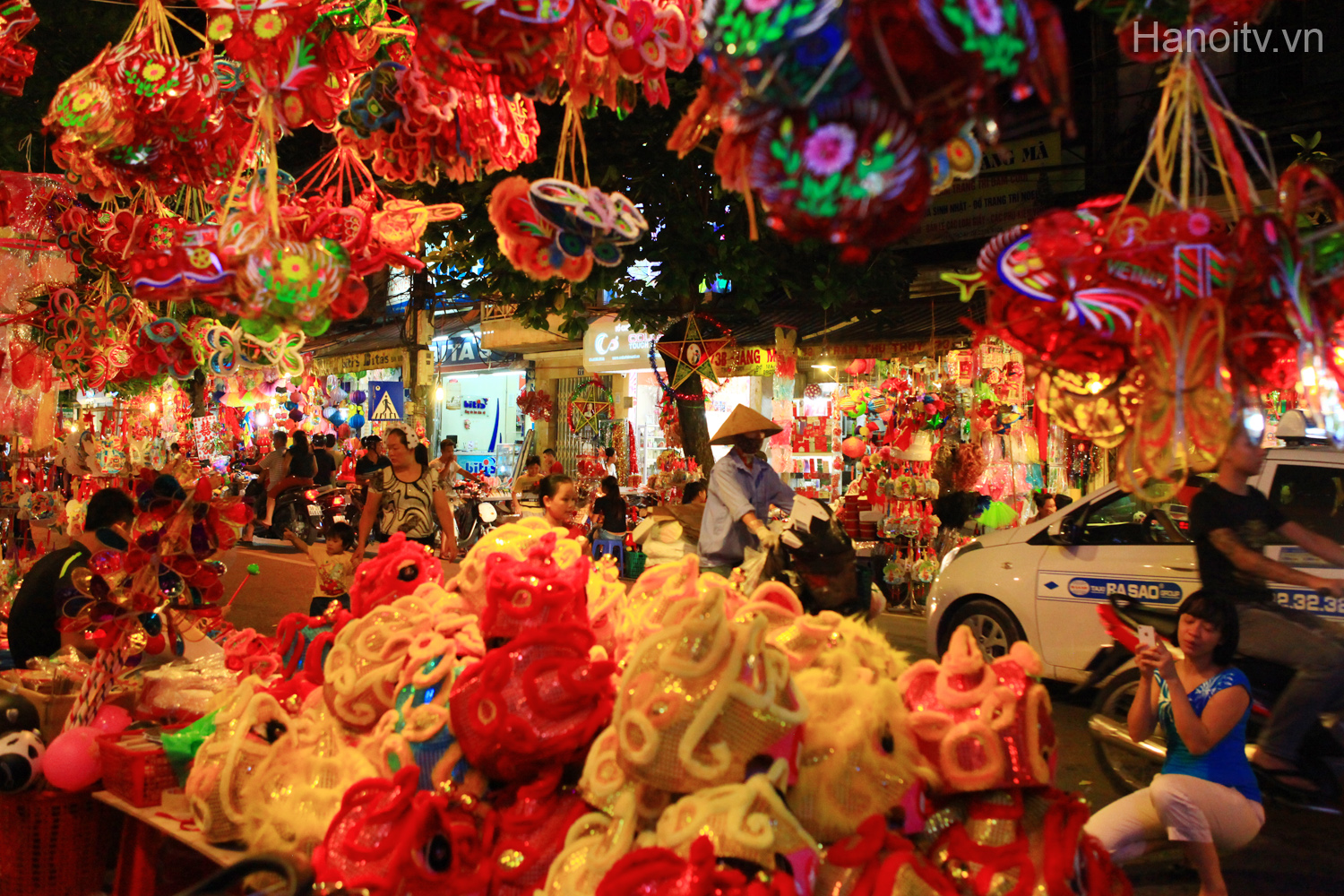
Photo: Hanoitv.vn
Exploring these festivals reveals not only the diverse ways in which families come together but also the deep connections to nature and heritage that define Vietnamese identity. Vietnam Travel Group will delve into the top ten important Lunar holidays in Vietnam, highlighting the cultural significance and unique traditions that accompany the Vietnamese.
1. Lunar New Year (Tet Nguyen Dan)
Lunar New Year (or Tet) is the largest and most important Vietnam holidays in the lunar calendar. It marks the happiest, liveliest, and warmest moment of the year. Tet signifies the transition into spring and the start of a new year, bringing hopes for luck and prosperity. Tet is a time for family reunions, where everyone comes together to enjoy the joys and abundance of the new year.
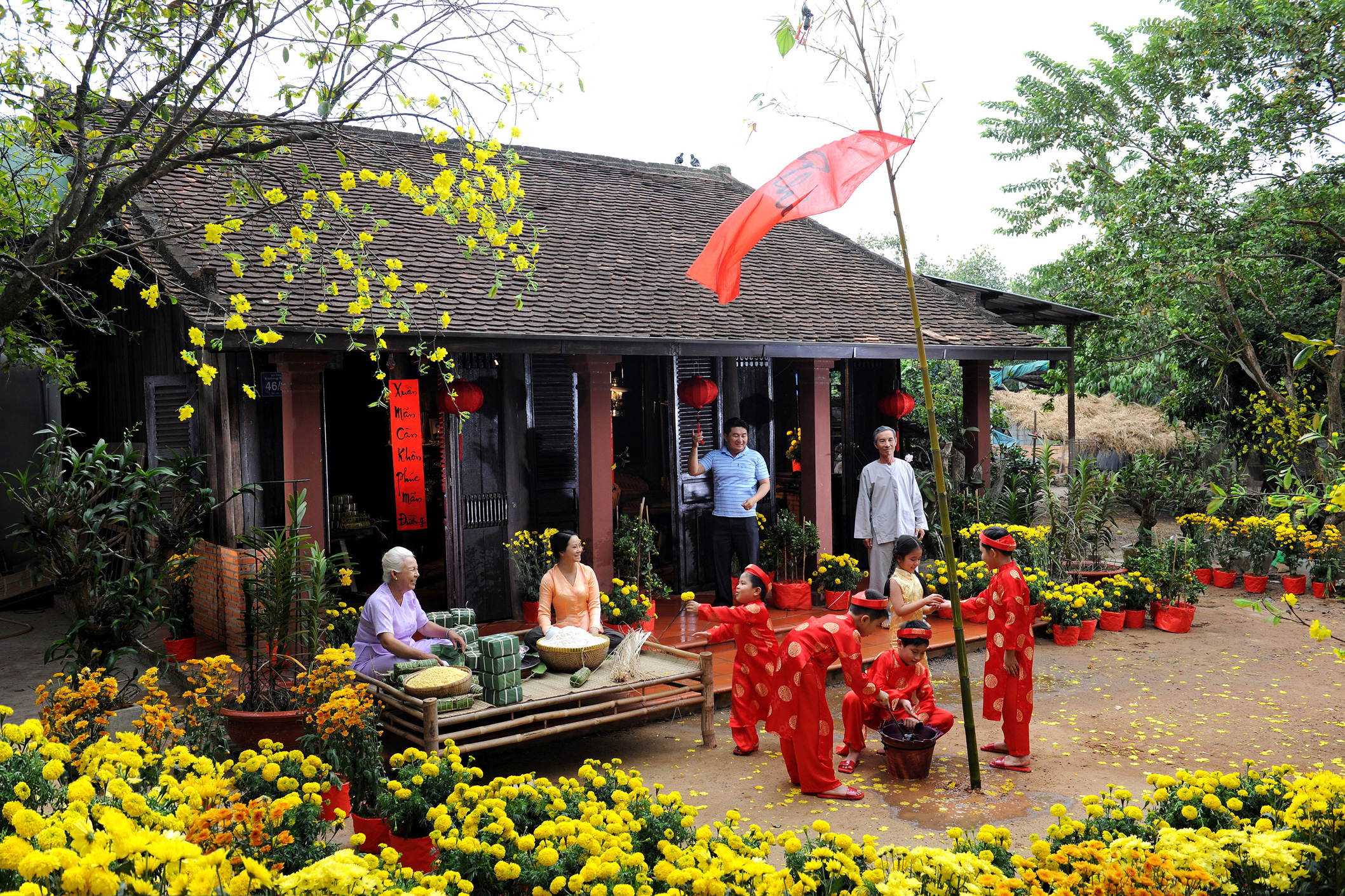
Photo: Internet
All daily worries seem to fade away, replaced by an atmosphere of optimism, relaxation, and immersion in the warm ambiance of spring. Tet is also a time to honor ancestors, reflect on traditional values, and share the best wishes.
With its profound meaning and positive beliefs, Tet Nguyen Dan brings a unique atmosphere that differs from any other holiday throughout the year. Tet is a time for family reunions and togetherness.
2. Cold Food Festival (Tet Han Thuc)
The next important lunar festival in Vietnam, Tet Han Thuc, retains unique cultural traits despite its origins in China. A delicacy of this day is “bánh trôi” and “bánh chay,” which carry the pure flavors of heaven and earth. These traditional foods are offered on ancestral altars, symbolizing gratitude and respect for our ancestors who raised us.
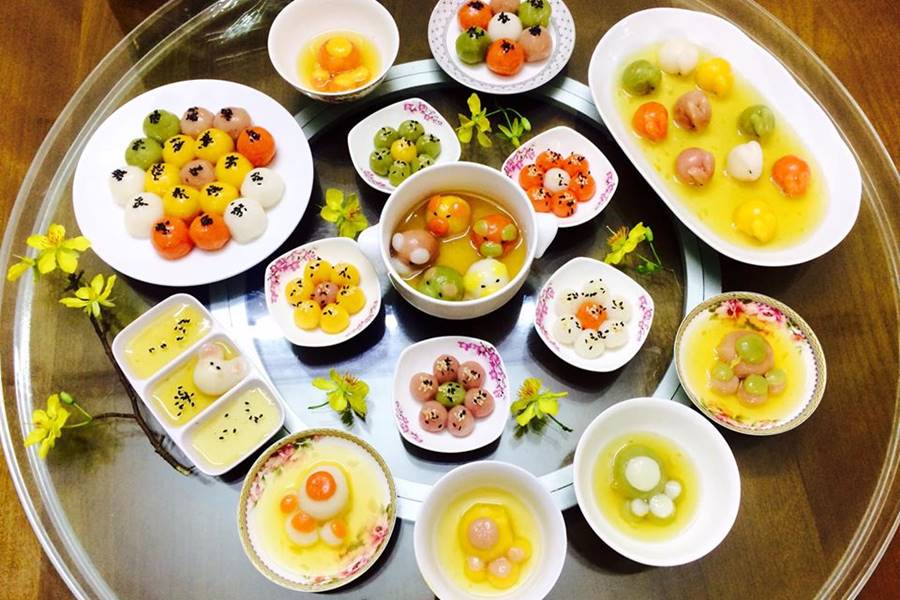
Photo: Internet
Bánh trôi and bánh chay are not only traditional dishes but also beautiful aspects of Vietnamese culinary culture, enjoyed during various celebrations such as the Hai Ba Trung festival, Hung Kings' death anniversary, and Phu Day festival in March.
3. First Full Moon Festival (Tet Nguyen Tieu)
Tet Nguyen Tieu is celebrated on the first full moon of the new year and is one of the most significant holidays in Vietnamese culture. Originating from Chinese traditions, Tet Nguyen Tieu has its own characteristics and significance in Vietnam. On this day, Vietnamese people often visit temples to pray for their families' safety and happiness, as well as for a smooth and prosperous new year.
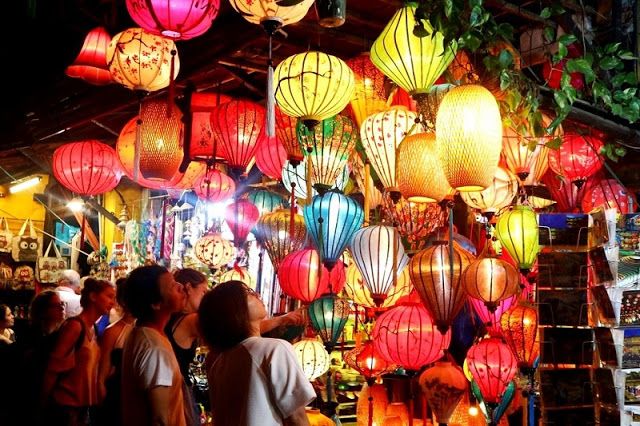
Photo: Internet
The saying, “Worshiping the Buddha all year round is not as good as the full moon of January,” highlights the importance of Tet Nguyen Tieu in the minds of Vietnamese people, showing the vital role of temple worship across the country. Nowadays, the full moon night of January has become an integral part of traditional cultural activities for communities, from urban to rural areas.
4. Buddha’s Birthday (Le Phat Dan)
For thousands of years, Buddhism has journeyed into Vietnam. Today, Buddhism has become an inseparable part of the spiritual life of the Vietnamese, attracting many believers. Buddhist concepts, serving as a moral compass, have deeply influenced the daily mindset of the people.
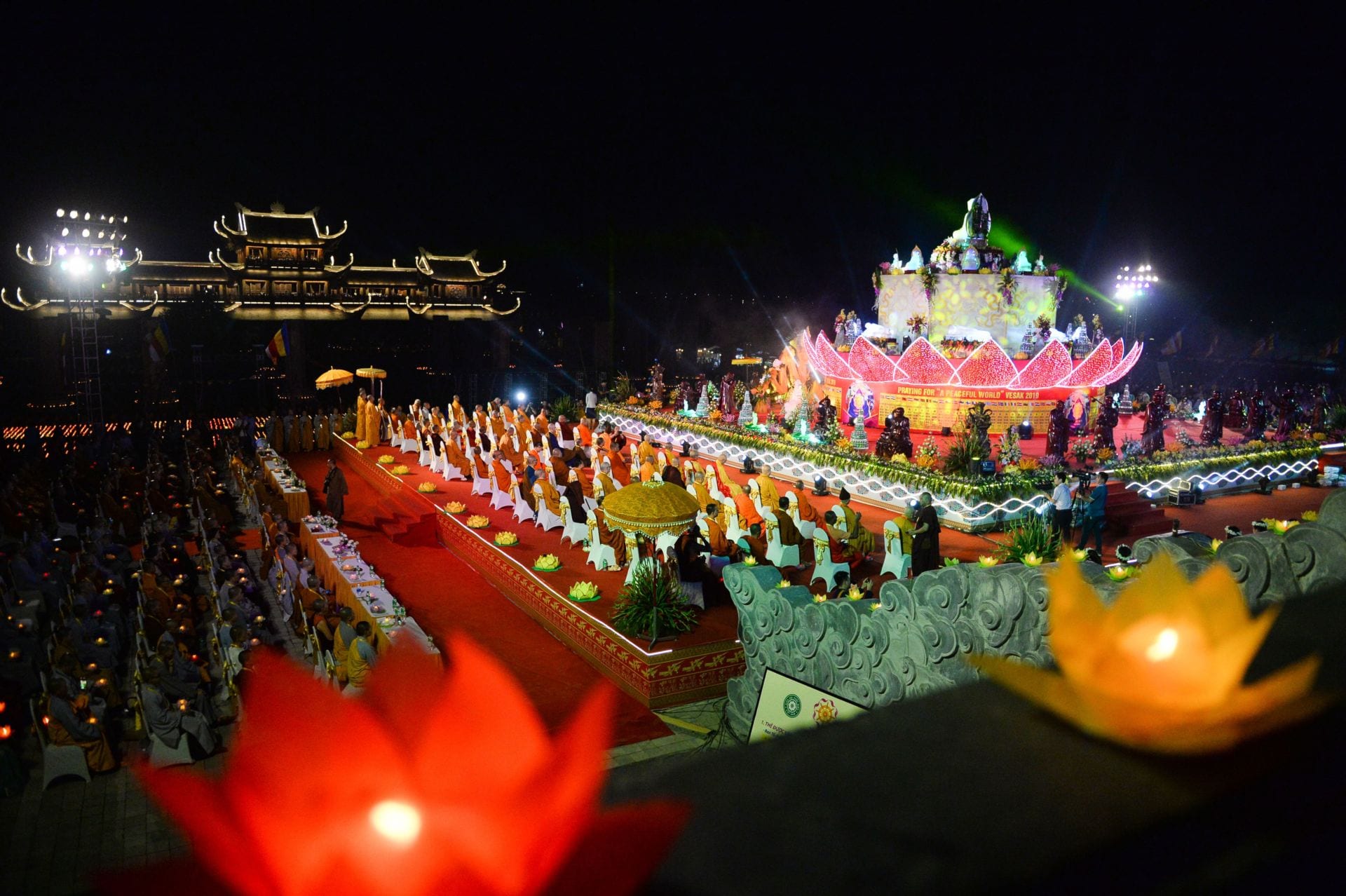
Photo: Internet
Buddha's Birthday is celebrated as one of the grand festivals of the community, organized solemnly by the Vietnam Buddhist Sangha to share joy with the global community commemorating the day the Buddha chose to lead a meaningful life. On this day, practitioners abstain from killing, control their bodies by eating vegetarian food, clean their homes, and decorate altars with elegance. They participate in spiritual rituals such as bathing the Buddha, performing good deeds at temples, and listening to teachings about life's ethics to purify their souls.
5. Hung Kings' Death Anniversary
The Hung Kings' Death Anniversary, also known as the Hung Kings Festival or National Death Anniversary, is one of Vietnam’s grand traditional holidays. This occasion honors and celebrates the contributions of the Hung Kings, who shaped the identity and culture of the Vietnamese people. Each year, on the 10th day of the third lunar month, this festival is solemnly held at Hung Temple in Viet Tri city, Phu Tho province, attracting many locals and tourists.
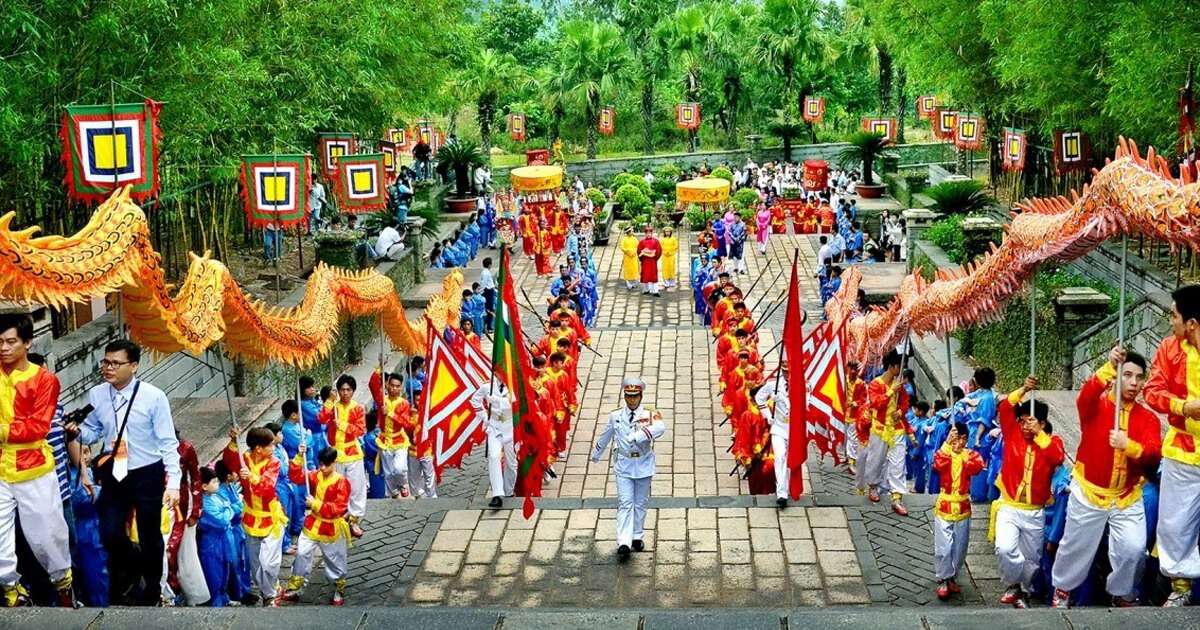
Photo: Internet
The folk saying “Whoever travels up and down, remember the Hung Kings’ Death Anniversary on the 10th of March” is not just a historical relic but also a symbol of spiritual connection between past and present generations of the Vietnamese. The journey back to Hung Temple each year is an opportunity for people to connect with tradition, reminding them of enduring cultural values and collectively honoring the heroic spirit of the nation.
6. Vu Lan Festival
In the hearts of all Vietnamese people, the Vu Lan Festival (on the 15th of the 7th lunar month) has long been an important occasion, indispensable in daily spiritual life. It is a time to express gratitude for the upbringing and nurturing of grandparents, parents, and ancestors, as well as to remember national heroes who sacrificed for the country.
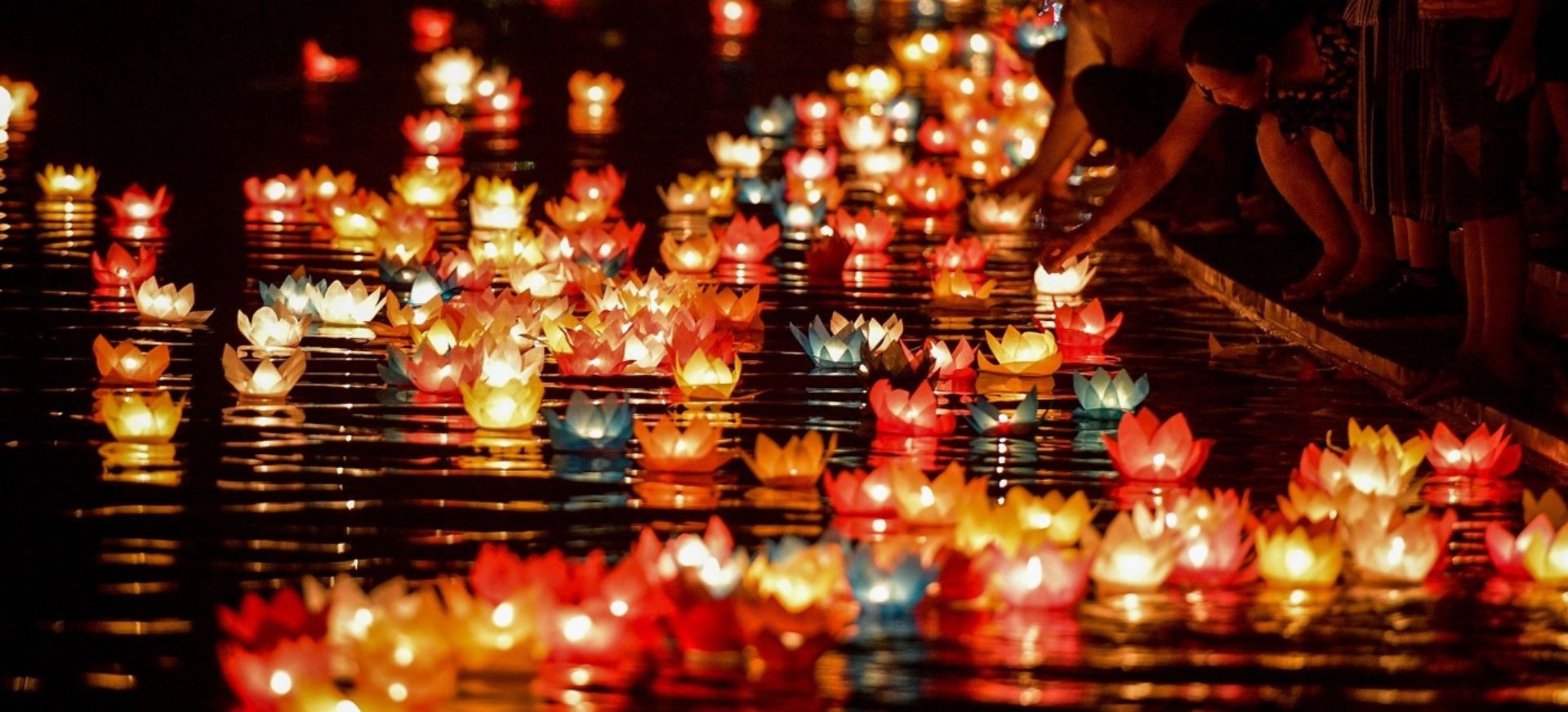
Photo: Internet
7. Mid-Autumn Festival (Tet Trung Thu)
The Mid-Autumn Festival is a major holiday in the lunar calendar in Vietnam, focused on the happiness of children. For thousands of years, people have had a connection with the moon. The moon, waxing and waning, reflects life's joys and sorrows, reunions and farewells. This festival is also known as the Festival of Reunion, when all family members hope to gather together around offerings for their ancestors. At night, the moon shines brightly, and the villages are filled with warmth, tea, cakes, and the joy of children with lantern parades, lion dances, and feasting...
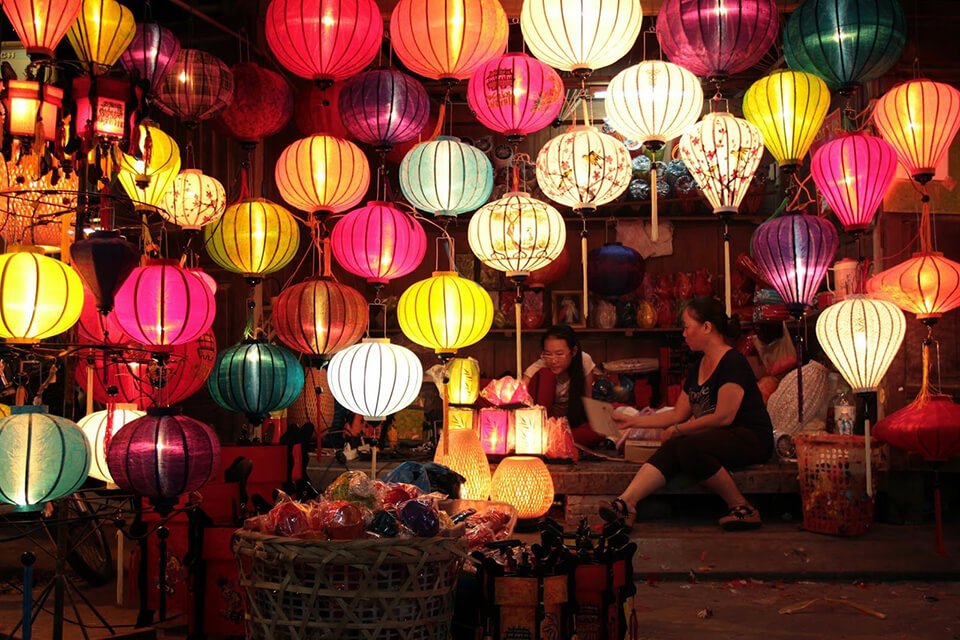
Photo: Internet
8. Year-End Celebration
The Year-End Celebration, the last holiday of the year in the lunar calendar in Vietnam, marks the end of the old year and the beginning of the new one. If it is a full month, the celebration takes place on the 30th of December; if not, it will be on the 29th. Homes are beautifully decorated with lights, flowers, and ornamental plants to welcome the new year.
On this day, families gather to prepare offerings, enjoying the last moments of the year while anticipating the warmth of New Year's Eve. After a busy year, everyone immerses themselves in a warm atmosphere, cherishing the joy of being together.
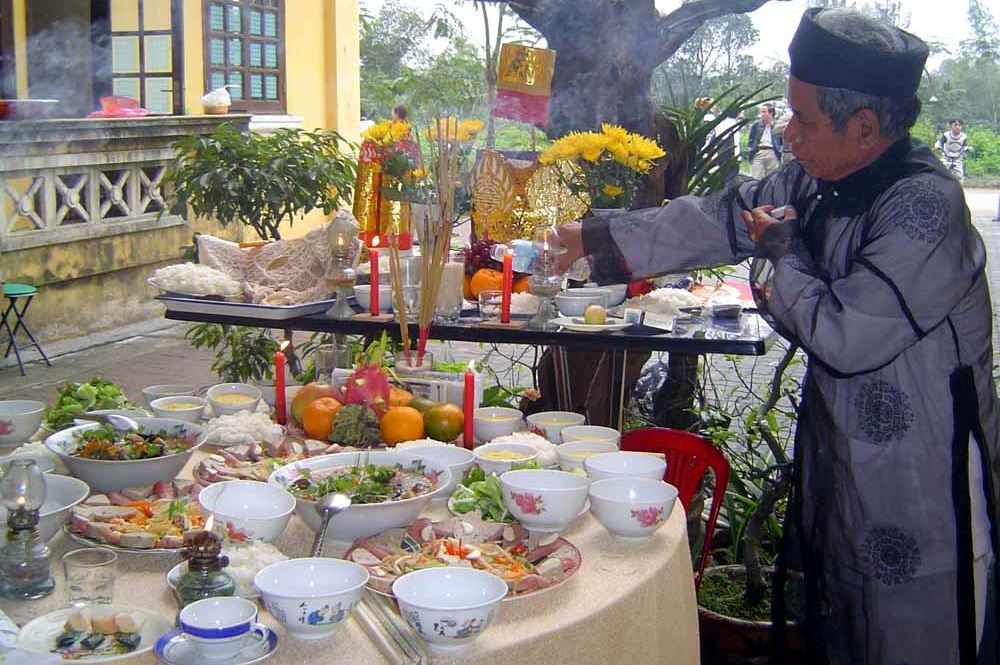
Photo: Internet
Life's hustle and bustle may make us forget to enjoy valuable moments. Therefore, let journeys bring balance, broaden perspectives, and create unforgettable memories. Each journey will help you appreciate life more. Start planning now to fully enjoy these new experiences! The content below will help you plan trips to interesting destinations.
As Vietnam continues to modernize, these lunar holidays serve as vital reminders of the country’s heritage and values. By understanding and celebrating these festivals, we gain insight into the heart of Vietnam and its people's enduring respect for tradition. Whether through shared meals, cultural performances, or community gatherings, these holidays offer a vibrant glimpse into the soul of Vietnam, fostering unity and appreciation for the past.